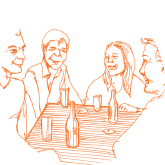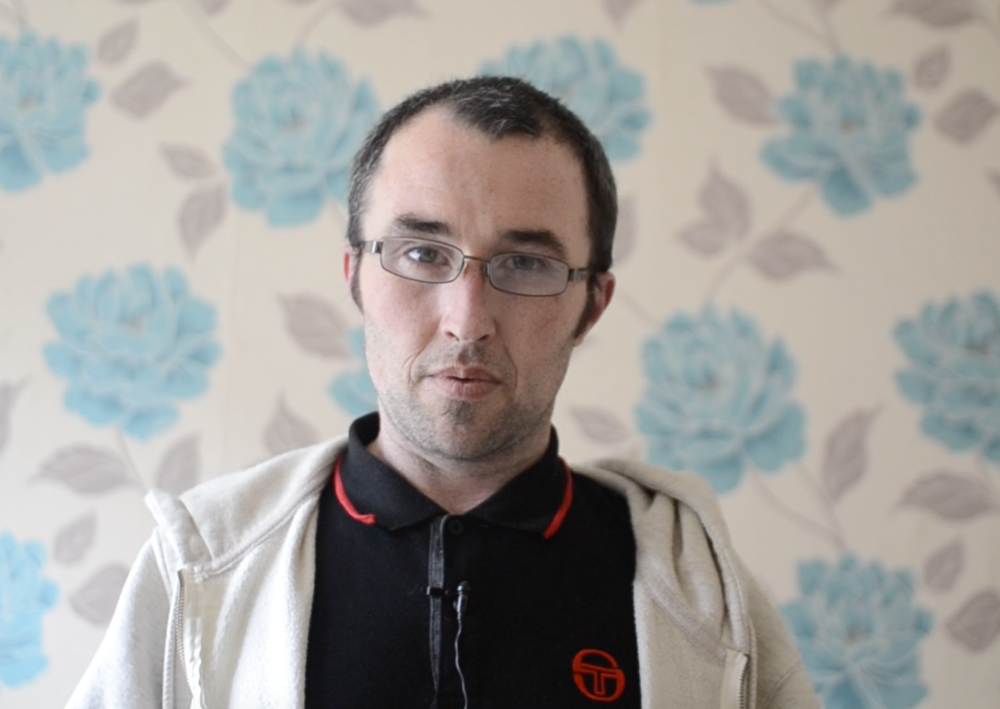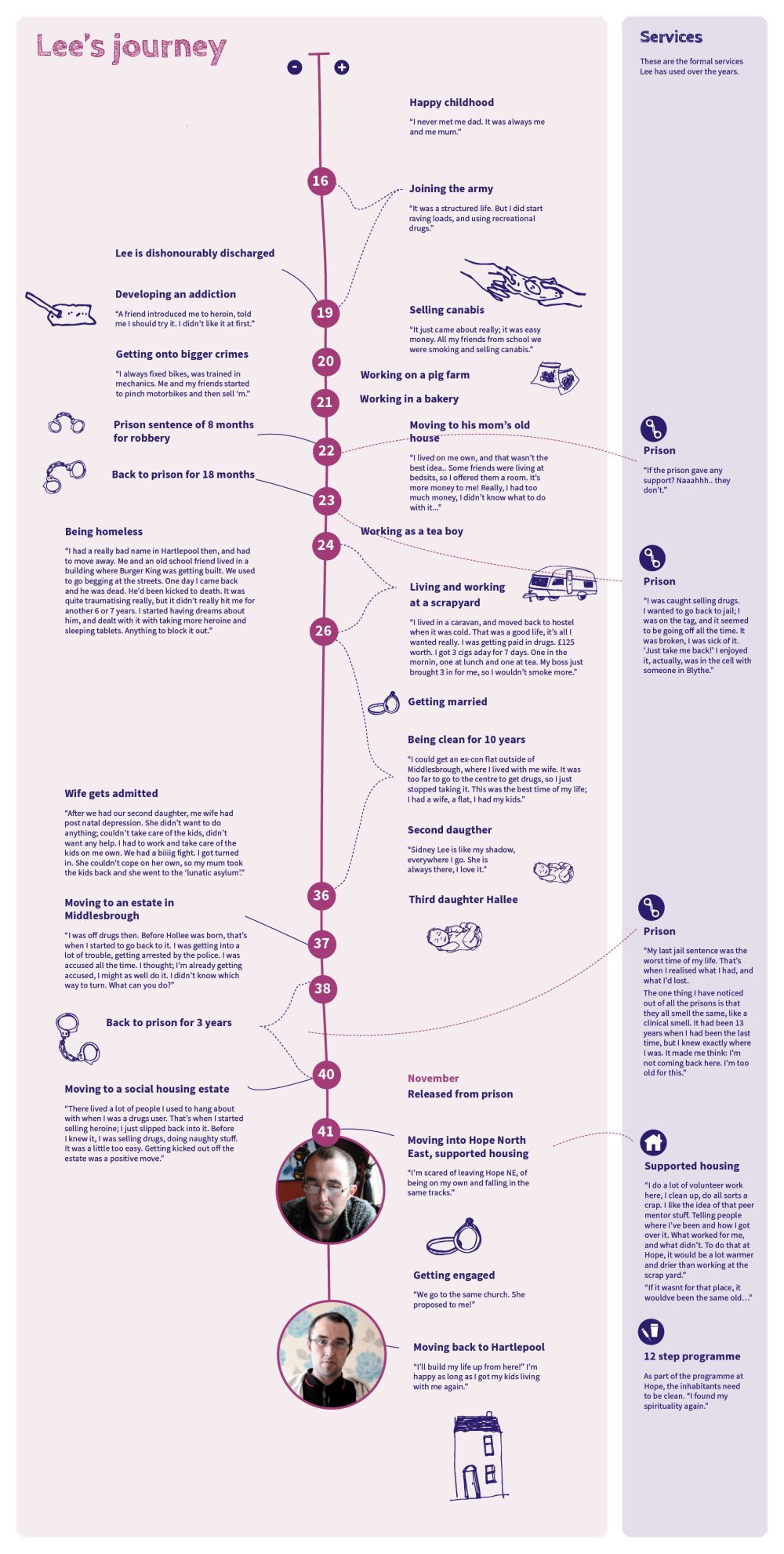“I would do anything to get my little shadows to live with me again.”
Lee has lead a chaotic life, yet he is someone with many talents – from mechanic to street artist to baker. What he wants most of all is to learn to be a good father to his 1 and 4 year old daughters. He also has a 19 year old daughter, who is currently studying art and he is very proud of her. All he wants at this moment is to stay clean and have his kids back.
“Whatever happens after that, happens.”
Lee didn’t do drugs for 10 years when he lived out of town, but heroin was always in the back of his mind. When his wife suffered postnatal depression, Lee had to take care of the kids and also go to town for work every day. To deal with his situation, he started taking drugs again. After a spell in prison he started working on a scrap yard, living in a caravan on site. He loved it and developed a close relationship with his boss and wife. He says that they eventually helped him get away from addiction.
If Lee’s story has touched you, let him know.
Take 2 minutes to send Lee a message.
Here are the insights that relate to Lee’s story:
Change: “the hardest thing you’ll have to do in your life.”
 Acknowledging traumas and learning to be vulnerable are part of the recovery journey. It can be challenging to adapt to a “stable” life, especially when it means giving up on old relationships and environments, or when people then have to face universal services that don’t recognise how far they have come. We need to recognise that recovery is a journey, not just a step.
Acknowledging traumas and learning to be vulnerable are part of the recovery journey. It can be challenging to adapt to a “stable” life, especially when it means giving up on old relationships and environments, or when people then have to face universal services that don’t recognise how far they have come. We need to recognise that recovery is a journey, not just a step.
For a more in-depth insight, read these stories and blog posts:
Lizz Zeb Natasha Tex Martin Karen Lee Colin
Building a new me – Part 1 Building a new me – Part 2
Recovery is a social journey
 Experiencing addiction, abuse or homelessness can be very isolating, and people experiencing those issues have often had to follow their own independent path from a young age. The system sometimes reinforces people’s isolation and sense that it is all their fault, while the circumstances they are in are in fact the result of a set of interdependent relationships. We need to support people to build positive relationships and social networks, and to be part of “recovery communities.”
Experiencing addiction, abuse or homelessness can be very isolating, and people experiencing those issues have often had to follow their own independent path from a young age. The system sometimes reinforces people’s isolation and sense that it is all their fault, while the circumstances they are in are in fact the result of a set of interdependent relationships. We need to support people to build positive relationships and social networks, and to be part of “recovery communities.”
For a more in-depth insight, read these stories and blog posts:
Lizz Tex Martin Lee Colin









Leave a comment